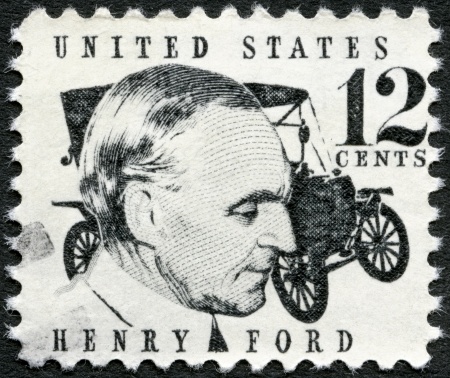New age gurus aside, there is a lot of scientific data on the benefits of meditation and the inert value of being able to retain a sense of calm in the face of adversity. I’m not necessarily talking about sitting in the lotus position while reciting a mantra and staring at the center of your forehead. I’m talking about the ability to lose one’s self in the moment and release all of the stress that we business people tend to dwell on.
As leaders, every day we are faced with what would send lesser men and women into a tailspin of vertigo and anxiety, as the mountains we must scale seem insurmountable and the peaks to which we must ascend have never been gazed at before. Every day we struggle to manifest our vision and achieve our goals against impossible odds, knowing we might fail and knowing that everything we hold dear could potentially come crumbling down around us.
 Meditation can take many forms: You could be sailing along the narrows in your sunfish or riding your Harley down a sunny lane. It could be a yoga class, your morning prayers, or a brisk, undistributed walk around the block. The simple act of allowing your everyday cares to evaporate, if only for a little while, has incredibly potent powers of rejuvenation. Allowing yourself to be ‘in the moment’ can help you gain new perspective on intense situations and help to build skills to manage tension.
Meditation can take many forms: You could be sailing along the narrows in your sunfish or riding your Harley down a sunny lane. It could be a yoga class, your morning prayers, or a brisk, undistributed walk around the block. The simple act of allowing your everyday cares to evaporate, if only for a little while, has incredibly potent powers of rejuvenation. Allowing yourself to be ‘in the moment’ can help you gain new perspective on intense situations and help to build skills to manage tension.
I highly recommend that you consider Transcendental Meditation. In a recently published long term clinical trial on alternative methods on lowering blood pressure conducted by the American Heart Association, Transcendental Meditation techniques were shown to reduce rates of death, heart attack and stroke by 48 percent. But beyond the obvious health benefits, when you meditate, you clear away the daily information overload that accumulates and contributes to your stress. The many benefits of meditation can include;
- Increasing self-awareness
- Focusing on the present
- Reducing negative emotions
In my personal experiences as both cynic and pessimist, I can testify to the fact that a successful, convincing, energetic approach to the task at hand is much harder to cultivate when you’re not one hundred percent invested in a positive outcome. I don’t subscribe to the vapid pseudo-science of “envisioning your success until it manifests before your eyes” but from my own personal experience I can tell you that you will encounter much resistance reaching your goals and having a clear vision and positive attitude can help overcome some stubborn obstacles. Meditation helps smooth the way to this.
Our society has long built too big a culture around the fear of failure. We celebrate failure with mock and ridicule as though it was designed solely for our entertainment. We post it to our Facebook walls and comment about it, we watch it on YouTube. We build blogs dedicated to it. We have tee shirts and humorous info-graphics illustrating it. We gossip about it and take mirth and delight from the mighty who fall prey to it. There seems to be an entire subculture dedicated to watching others fail.
Does this encourage anyone to take a chance to manifest their dreams and forge ahead into the unknown? Why? So you may be held up for ridicule by others who are far more inhibited and docile than you? What kind of unwanted pervasive message does this inflict onto the psyche of our everyday consciousness?
Here’s a radical thought: Failure is practical and failure should be embraced because failure is the gateway to success. How do I know? Because of all the men and women who failed much bigger and better than you or I ever will. Their successes are legendary and the hardships they faced would crush the mighty. They believed like starving zealots when the rest of the world mocked them. Think about this:
Thomas Edison, one of the greatest inventors of all time was told by his teachers that he was “too stupid to learn anything” and after a brief and disappointing attempt at a formal education, was mostly home schooled. Despite any scientific training, he went on to invent the phonograph, the motion picture camera and a long-lasting, practical electric light bulb.
Walt Disney once ate dog food to survive and had several business ventures that ended in failure. MGM rejected Mickey Mouse because they said a giant mouse on the screen would terrify women. The Three Little Pigs was rejected by distributors because it only had four characters. Fantasia failed to connect with its intended audience. Failures piled up, but Walt persevered.
Harland Sanders was sixty-five years old when new highway construction left him with nothing but a Social Security check and a secret recipe for fried chicken. And that’s where his franchising odyssey begins! Prior to that he failed at a wide assortment of careers, including; farmhand, army mule-tender, locomotive fireman, railroad worker, insurance salesman, ferryboat entrepreneur, tire salesman, gas station owner, and motel operator.
J.K. Rowling’s career did not get off to a great start either. After graduating college, her marriage had failed and she was a jobless single mom living off welfare. She was diagnosed with clinical depression and even contemplated suicide. In 1995, her first Harry Potter book was rejected by twelve publishers, before getting the green light and paltry $1500 advance. In 2004 she became the first author to ever achieve billionaire status. That’s less than ten years later folks!
Henry Ford’s first company, the Detroit Automobile Company, went out of business in 1901 amid customer complaints of high prices and low quality. The Henry Ford Company was founded one year later and quickly abandoned due to a fight with his partner. His third company nearly collapsed from low sales numbers. All the while Henry Ford never lost sight of his goals, or his willingness to overcome obstacles to achieve his vision.
The point is simple: Release yourself from the culture surrounding us that exists to judge the degree to which each of us is a failure or a success. Some of our society’s greatest triumphs have been born of failure; Bill Gates, Oprah Winfrey, James Dyson…recent history is filled with them. As entrepreneurs we must be ready to accept our failure and learn from it, not march home in crushing defeat and bury our heads under our pillows. Failure can open our minds to a deeper understanding, and may lead to greater opportunity, as long as we are prepared to continue moving forward.
There are also innumerable emotional benefits to failure if you are open to them. Having the courage to fail is to live without regret. No one reaches the end of their life and thinks “I wish I didn’t attempt to achieve my dreams. I should have stayed home and watched the wallpaper crumble…”
The ability to accept defeat, learn from it, and move on is a difficult skill to master. I have found meditation to be of great benefit in these trials of success and failure. Learning to quiet my mind and focus on my breathing has been incredibly beneficial to me. It has helped me to traverse some very difficult terrain in my journey ever upward and has had lasting health benefits as well. I highly recommend that you seek a certified professional TM instructor at www.tm.org (a non-profit organization).

